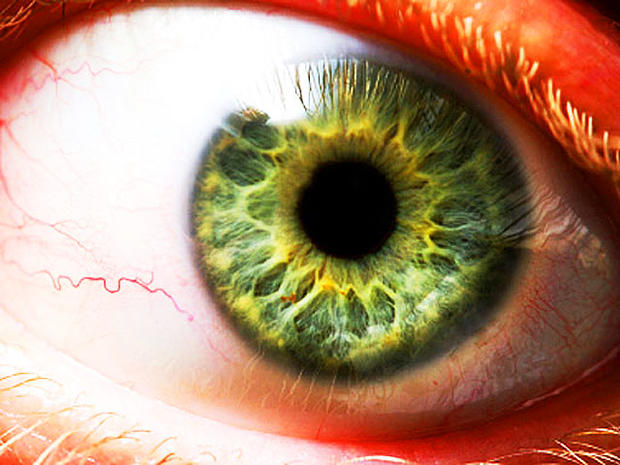Uh-oh! 12 diseases doctors overlook
Some medical conditions are easy to diagnose. Others produce symptoms so vague or "nonspecific" that even skilled doctors have a hard time telling what ails the patient. As a result, some patients spend years or even decades suffering from treatable maladies.
Keep clicking as Dr. Orly Avitzur, medical adviser at Consumer Reports, spotlights 12 hard-to-diagnose ailments - and what you need to know to protect yourself or a loved one...
Sleep apnea
An estimated 90 percent of people with sleep apnea - disordered breathing during sleep - aren't diagnosed, probably because doctors don't learn much about the condition in medical school. Sleep apnea typically causes heavy snoring (which may not be seen as a medical problem), but there are other symptoms to look out for, including fatigue, poor concentration, and daytime sleepiness. And treatment is essential, as it has been linked to stroke and heart attack.
Although older people are most vulnerable, sleep apnea is increasingly being seen in children, especially obese kids with enlarged tonsils, says Dr. Pell A. Wardrop, director of the St. Joseph Sleep Wellness Center in Lexington, Kentucky. If you suspect that you or your partner has sleep apnea, get an evaluation by a sleep specialist.
Migraines
Thirty-two million Americans have potentially debilitating headaches known as migraines. Doctors tend to be pretty good at spotting migraines in patients who experience the typical symptoms, severe pain on one side of the head, sensitivity to light, and nausea/vomiting. But doctors sometimes miss migraines that lack these symptoms - and blame the problem on sinus or tension-type headaches, says Dr. Alexander Mauskop, director of the New York Headache Center. "It's not unusual for patients to come to me after they've been diagnosed as having sinus headaches and treated with multiple courses of antibiotics unnecessarily," he says.
Glaucoma
Glaucoma is actually a family of diseases caused by elevated pressure within the eye, and the potentially blinding condition can sneak up on patients and their doctors alike. "People with glaucoma typically first lose peripheral (side) vision, and may not go to a doctor until their eyesight is so impaired that they start to bump into things," says Dr. Andrew G. Iwach, clinical correspondent to the American Academy of Ophthalmology. And glaucoma can be hard to catch via eye screenings - especially in patients who have undergone vision-correcting refractive surgery, which can cause eye pressure readings to be falsely normal. "Everyone needs to see an ophthalmologist by age 40 to have a full eye exam that includes a comprehensive glaucoma screening," Dr. Iwach says.
Bipolar disease
Bipolar disease, a.k.a. manic depressive illness, is relatively easy to diagnose in adults. But mania in kids is often taken to be evidence of more common conditions, such as attention deficit-hyperactivity disorder (ADHD) or oppositional defiant disorder (ODD). "The best tip-off is that mania of bipolar illness is episodic, whereas the behavior is chronic in ADHD and ODD," says Dr. David A. Axelson, associate professor of psychiatry at the University of Pittsburgh School of Medicine. "The challenge is differentiating what is truly an abnormally elated mood with grandiosity from developmentally normal silliness, boastfulness or overestimation of ability." To make matters even trickier, children may have difficulty describing what they are feeling.
Childhood asthma
Typically, kids with asthma experience shortness of breath, frequent coughing spells, a whistling or wheezing sound when exhaling, and congestion, pain or tightness in the chest. But some asthmatic kids experience atypical symptoms, such as restlessness, poor sleep, inability to keep up with other kids, or coughing after laughing. "If you suspect asthma, and you're not satisfied with a doctor's response, ask for a second opinion with a pulmonologist or allergist," says Dr. Norman H. Edelman, the American Lung Association's chief medical adviser.
Lupus erythematosus
It's easy for doctors to diagnose lupus in patients who exhibit the tell-tale "butterfly" rash that often characterizes the chronic autoimmune disease. But some lupus sufferers exhibit roundish "discoid" lesions instead - and that can make the condition hard to diagnose, especially when they appear on the scalp or ear. "The roundish discoid lupus skin lesions typically have some silvery scaling and central scarring, but if the central scarring goes unnoticed, the condition can be misdiagnosed as psoriasis," says Dr. Joseph L Iorizzo. "People of color are at particular risk for the diagnosis to be overlooked, because of the tendency for these lesions to undergo color changes." Have a suspicious lesion on your skin? See a dermatologist.
Sjogren's syndrome
Sjogren's is a chronic autoimmune disorder that is often - but not always - marked by dry eyes or mouth. But Sjogren's is "a hard diagnosis to make because there is no single sign, symptom, or complaint" that defines it, says Dr. Robert F. Spiera, director of vasculitis and scleroderma programs at New York City's Hospital for Special Surgery. And it doesn't help things that Sjogren's sufferers often complain not of dryness but of less specific symptoms, such as fatigue or aches. If you're tired and suffer from dry eyes or mouth along with joint pains, alert your doctor to all those symptoms. Blood tests can help confirm the diagnosis.
Oral cancer
Cancers of the tongue and tonsils often go misdiagnosed because doctors may not suspect cancer in nonsmokers. But the truth is that one in five of these cancers is attributable not to tobacco use but to infection with human papilloma virus (HPV), the same pathogen that causes cervical cancer in women. "Because the lesions can be small and hidden in the back of the throat, patients often don't get diagnosed until the cancer has spread to the lymph nodes in the neck," says Dr. Elizabeth A. Blair, associate professor of surgery at the University of Chicago. Have a persistent sore throat, change in your voice or speech, or a swallowing problem that doesn't get better in two weeks? Consult a doctor. And a new lump in the neck that doesn't get better after a course of antibiotics? Insist on seeing an otolaryngologist (ear, nose, throat doctor).
Hip disease
Some hip disorders are hard to spot because they cause knee pain. "The pain is 'referred' to the knee from the nerve that supplies sensation to the knee region as it crosses the inflamed hip joint," says Dr. Joel Buchalter, clinical assistant professor of orthopedic surgery at New York City's Hospital for Joint Diseases. In some cases, doctors treat what is actually hip trouble by performing surgery on the knee. If your knee hurts, make sure the doctor checks your hip. That's especially important if your painful knee isn't swollen and doesn't click with movement.
Interstitial cystitis
Interstitial cystitis (IC) is a common condition that is commonly mistaken for a bladder infection, a.k.a. urinary tract infection (UTI) - especially in women. "These women have urinary urgency and frequency, pain on voiding and pelvic pain - the same symptoms as a UTI," says Dr. Neil Baum, associate clinical professor of urology at Tulane Medical School and Louisiana State University Medical School. "Most of these women receive multiple courses of antibiotics without any improvement, and many will see three to five doctors before the diagnosis is made," he says. What to do? If you have symptoms of a UTI, and the urinalysis and urine culture are both negative, see a urologist.
Celiac disease
Doctors fail to diagnose this chronic inflammatory disorder of the small intestine because they don't think about it," says Dr. Mark Pochapin, director of the Jay Monahan Center for Gastrointestinal health at New York Presbyterian Hospital/Weill Cornell. That's because the condition, a.k.a. sprue, is considered by many to be rare even though it affects up to 1 percent of the population. Symptoms include gas/bloating, diarrhea, weight loss, and growth delay in children - but these can be subtle. Some people with celiac disease are actually overweight. Dr. Pochapin says he often diagnoses celiac disease in people whose symptoms had been blamed on irritable bowel syndrome or lactose intolerance. A blood test can be used to spot the condition, although the gold standard for diagnosis remains endoscopy and a biopsy of the small intestine.
Pelvic inflammatory disease
A disorder of the female reproductive tract, pelvic inflammatory disease (PID) can lead to infertility and other serious medical problems. Typical PID causes fever and severe pelvic pain - which some doctors mistake for appendicitis. What's more, some cases of PID cause abnormal cramps or menstrual periods and discomfort after sex - vague symptoms whose cause can be hard to pinpoint. Any woman who has experienced a recent change in periods, or who has recently changed sex partners and is feeling vaguely unwell, should see a doctor for a pelvic exam, along with tests for gonorrhea and chlamydia. "This is one case where it's better to be over-treated than untreated," says Dr. Constance A. Young, assistant professor of obstetrics & gynecologist at Albert Einstein College of Medicine.












